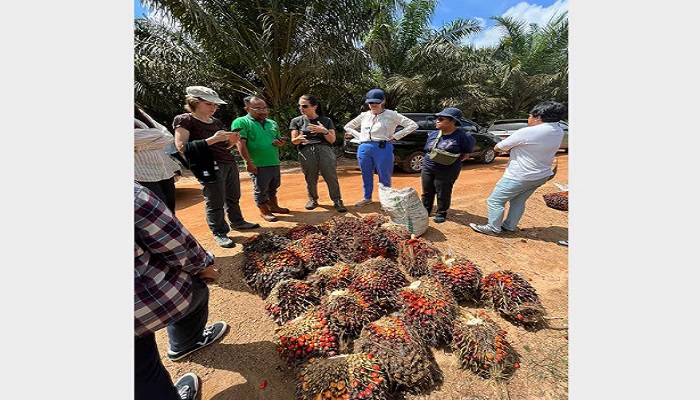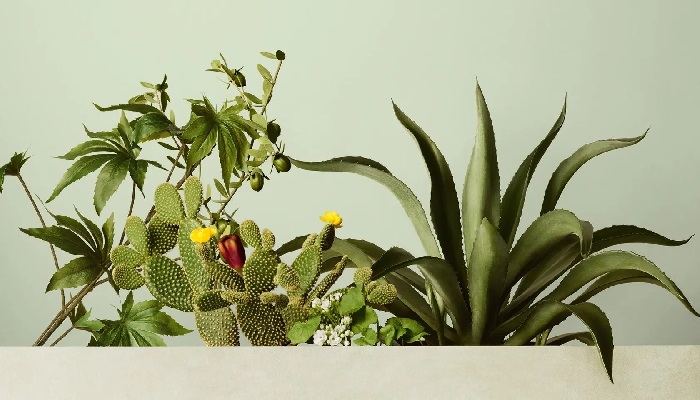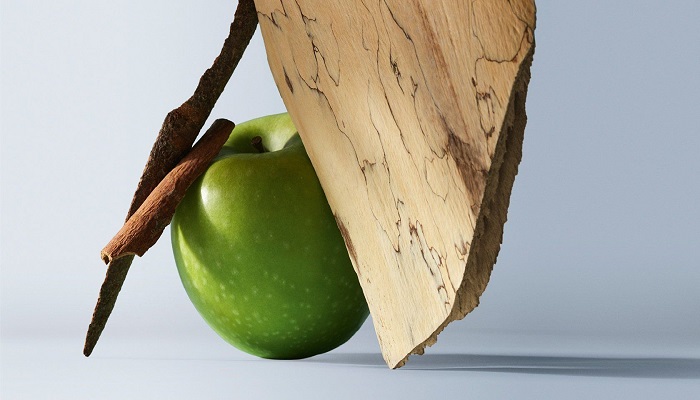ELC and leading organizations recently announced the completion of Project Lampung, a collaborative initiative to enhance sustainability in the palm oil supply chain.
The Estée Lauder Companies (ELC) recognizes the importance of driving positive impact through collective action in communities in and around their sourcing locations, and seek out business and community partnerships that are built on this shared commitment. That’s why ELC is proud to share more about a recent initiative in the palm oil supply chain developed in partnership with global and local organizations—Project Lampung.
Launched in 2018, Project Lampung is a program aimed at strengthening the sustainability of the palm oil supply chain and supporting smallholder farmers in the Lampung province of Indonesia. Implemented by global NGO Solidaridad, the collaboration included BASF, one of the long-term ingredient suppliers; the Roundtable on Sustainable Palm Oil (RSPO); Business Watch Indonesia (BWI); and the Indonesian Agency for Agricultural Extension (KTNA), a local farmers association. Originally a 3-year initiative, Project Lampung evolved and was extended to help accommodate shifting priorities for smallholder farmers in an effort to best support their needs during the COVID-19 pandemic. Although plans for in-person training and engagement were postponed until groups could safely gather, the local team worked hard to build trusting relationships with the farmers and initiated Farmer Field School trainings in January 2022.
In total, the initiative provided technical education and training for 1,003 independent smallholder farmers and helped 313 of those smallholders receive official RSPO certification, making them the first such group in the Way Kanan Regency of Lampung to do so. One farmer remarked, “The RSPO principles have been excellent for preserving our environment, keeping our soil healthy, and helping our plants to thrive, resulting in healthy yields, and I’ve committed within myself to adhering to these principles.”
Prior to the program’s launch, smallholders in Way Kanan had limited exposure to sustainable palm oil production practices, and the cooperative did not have a strategic focus on supporting smallholders. Through a program of continuous education, the farmers improved their knowledge in sustainable production, including learning good agricultural and best management practices that help protect the environment. As part of Project Lampung and in partnership with local organizations, a Social Impact Assessment and Environmental Impact Assessment were also conducted, mapping farmers’ fields to verify that no deforestation or land conversion had taken place.
To support direct market access for smallholders, ELC also announced the purchase of 220 RSPO credits from these newly certified farmers in the Lampung region. This purchase also supports the company’s commitment to source its palm-based ingredients responsibly. Since 2015, 100% of the palm-based ingredients* sourced by ELC are certified under one of RSPO’s certification types.
Most recently, ELC received a top score of 10 in RSPO’s Shared Responsibility (SR) Scorecard and was one of 75 organizations out of more than 1,800 to receive a score above 8.5. A top score in the SR Scorecard recognizes a demonstration of sustainability leadership and commitment to transforming the sector through implementing shared responsibility requirements.
Through its Charitable Foundation (ELCCF), ELC is also a founding member of the Action for Sustainable Derivatives (ASD) Impact Fund, a collaborative initiative that allows funding partners to direct support to on-the-ground projects that address underlying issues influencing responsible practices in priority palm production landscapes. With ELCCF and other donor support, ASD has continued to help expand the Kaleka Mosaik Initiative, a program focused on finding ways to sustainably restore the landscape and drive economic growth, in 2 of the largest palm-producing districts in Central Kalimantan, Indonesia.
ELC remains committed to identifying opportunities like Project Lampung that will extend and scale the impact, understanding that continued efforts to support smallholder livelihoods and protect the planet require a global, inclusive, and collaborative approach.
Source: The Estée Lauder Companies



